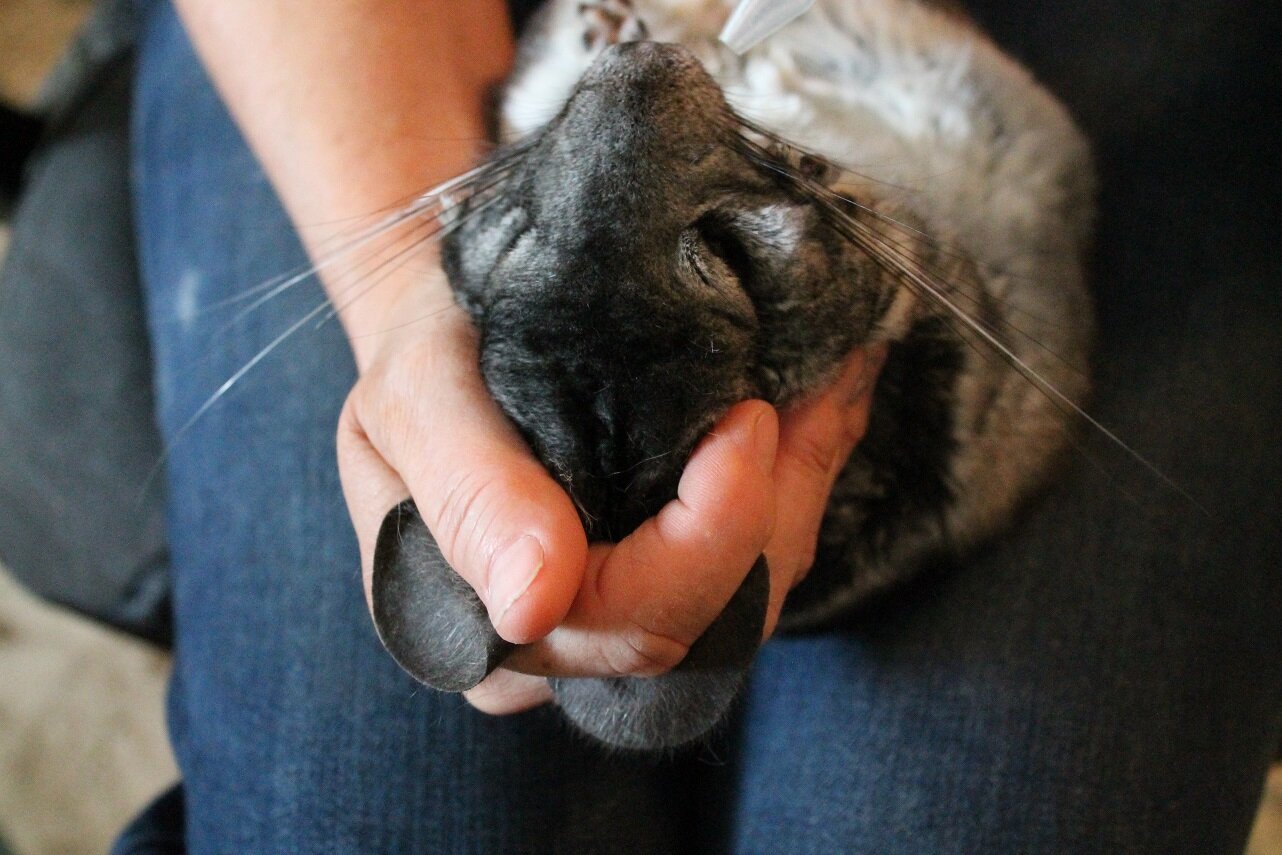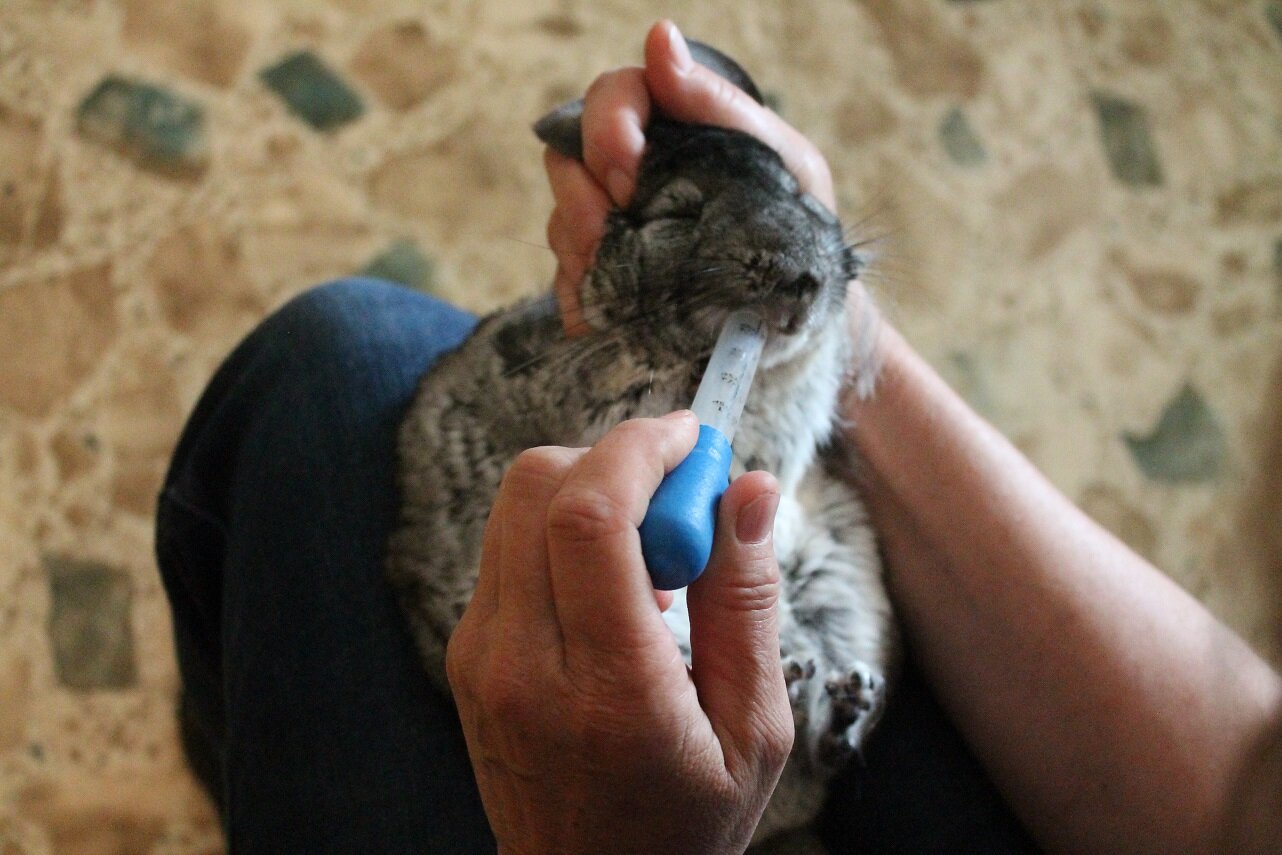Administering medications, hand feeding or applying medical care on a chinchilla can be a daunting task, especially if a helping second pair of hands is not available. In clinics, veterinarians are taught to use the shoulder hold. This can be especially dangerous for chinchillas whose bone structure is quite fragile. Not to mention the fact that with the shoulder hold, the head is still a moving target.
The burrito hold (wrapping in a towel) also poses dangers from crushing. We’ve actually had a chinchilla surrendered to us whose tail was broken due to an experienced chinchilla owner attempting the wrap. With the burrito hold, the head is still free to refuse service.
We have a “handy” tip that we use to instruct vet clinics when we’re called to teach in-service training and for individuals who need pro advice. We use the ear hold. When done correctly, there is no pain and the procedure is quickly applied and done, which results in lower stress for the animal. It is a one-handed hold that limits movement without binding the entire body.
First, prepare your area with necessary tools. Gather whatever implements you’ll need such as a towel, wet wipes, eye wash, pre-measured medications or pre-mixed hand feeding formula, etc. With one hand, gently but firmly grasp the base of the ears being sure that none of the tissue is folded between your fingers. Support the weight of the chinchilla’s body in your lap as your hand cradles its head and ears. The body should be prone and in an uphill alignment with the head higher than the hind feet. Be prepared, the animal will most likely curl up and try to kick your hand. Your grasp should be firm enough to ensure that the chinchilla cannot slip loose. With your free hand, apply wipes, meds, or whatnot. Pictures below for reference showing different angles of the hold.
It is normal for a subdued animal to try to escape. The chinchilla may squeal in fright. Typically, after only a brief struggle, the chinchilla will calm down. The procedure can be scary for the animal and the owner. But if your pet’s life depends on treatment, this bit of instruction should make the task easier on both.
A special thanks to our medication model, Liliana.













